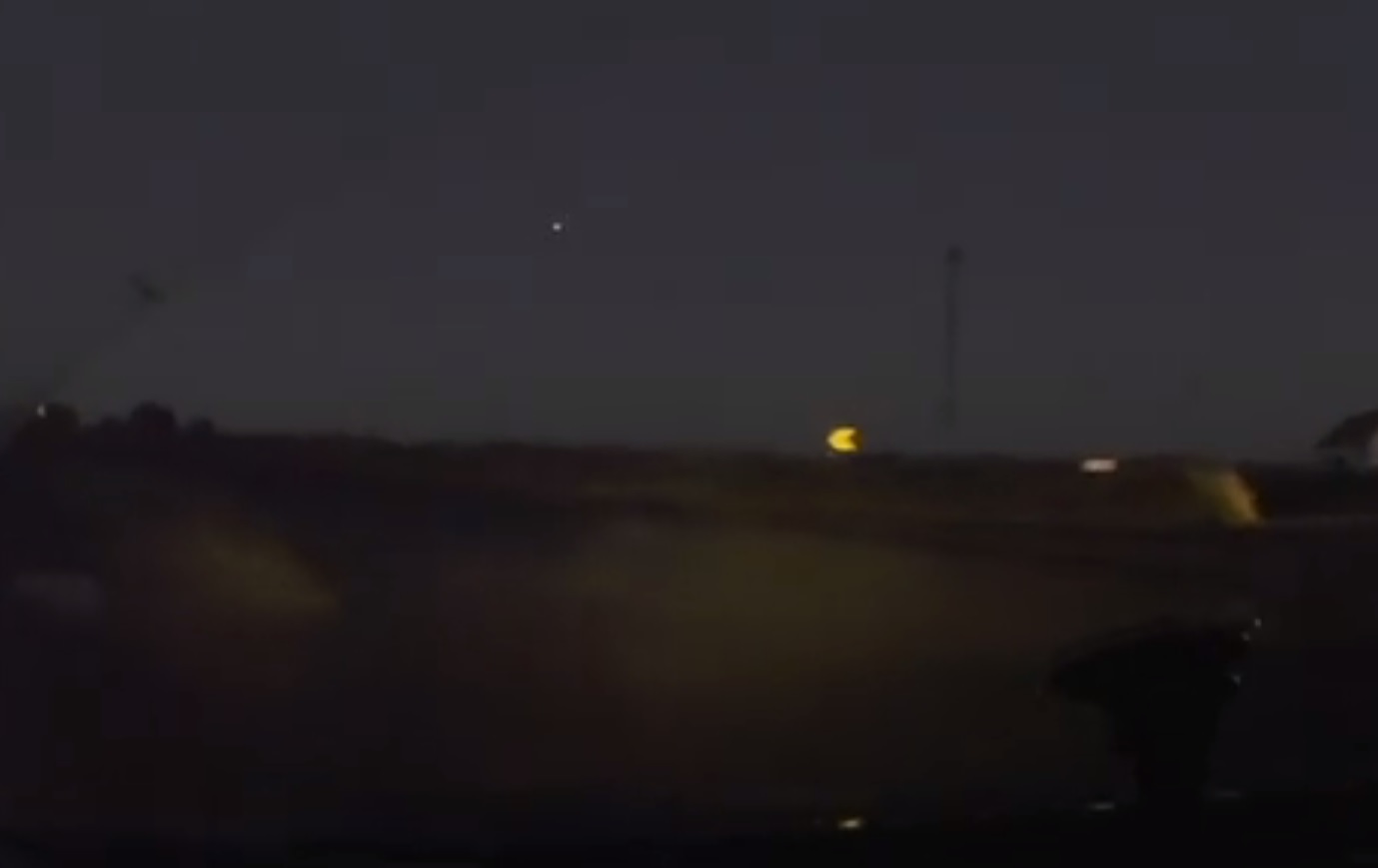
A FIREBALL was spotted streaking its way through the skies over the UK and Ireland last night.
People reported seeing the meteor from Swansea all the way to Moray.
The only known visual evidence of the fireball was recorded by a web cam in Galway, Ireland, at around 5.15pm as it blazed its way overhead.
The fireball was spotted by people in Belfast, Galway, Dundee, Glasgow, Ayrshire, Skipton, Cumbria, Swansea, Merseyside, Alnwick and York.
And it wasn’t long before people took to social media to share their sightings.
Amateur astronomer Brian MacGabhann, from Galway, captured the only known footage on a dash-cam in his car.
He shared the footage on Facebook and said he spotted the meteor in the North East from where he was in Galway.
He wrote: “It seemed to break up a bit before exiting the atmosphere.”
[facebook url= ‘
‘]
Andy Harrold, from Moray, wrote: “I was looking at Venus at time it came streaking past, broke up & disappeared.”
Fellow Scot, Robert Gibson, from the West of Scotland, wrote: “I saw it, breaking into multiple parts as it crossed the sky from east to west, looked amazing.”
Steve Owens, planetarium manager at Glasgow Science Centre, said: “This was a very bright meteor, known as a fireball, which was seen by sky watchers across Scotland, Northern Ireland, and northern England around 5.15pm last night [23 November].
“The piece of space rock that burned up in our atmosphere, causing the fireball, was perhaps the size of a pebble.
“As it slammed into the Earth’s atmosphere it compressed the air in front of it, heating it to such extreme temperatures that the meteor burned up, appearing to glow brighter than the brightest star for several seconds.
“This happened high up in our atmosphere, and so it was seen across much of the northern UK.”
If a piece of the space rock survived all the way to the ground it would be termed a meteorite rather than a meteor and could be worth a significant sum of money.
In the past meteorite hunters have offered five-figure sums of money to anyone who can prove they have genuine pieces of a space rock that landed in Britain.
Steve Owens, said it was likely the meteor burned up completely in the atmosphere.
People who spotted the meteorite have been asked to report it to the Society for Popular Astronomy who can use that data to pinpoint its path.
For more info go to: http://www.popastro.com/meteor/fireballs/reportform/index.php
VIDEO – We talked to expert Dr Benjamin Cohen from The University of Glasgow for World Asteroid Day:
READ MORE
Meteorite hunter offers £10,000 reward for parts of space rock that fell on Scottish soil
World Asteroid Day – is that large piece of gravel actually a meteorite?

Enjoy the convenience of having The Sunday Post delivered as a digital ePaper straight to your smartphone, tablet or computer.
Subscribe for only £5.49 a month and enjoy all the benefits of the printed paper as a digital replica.
Subscribe